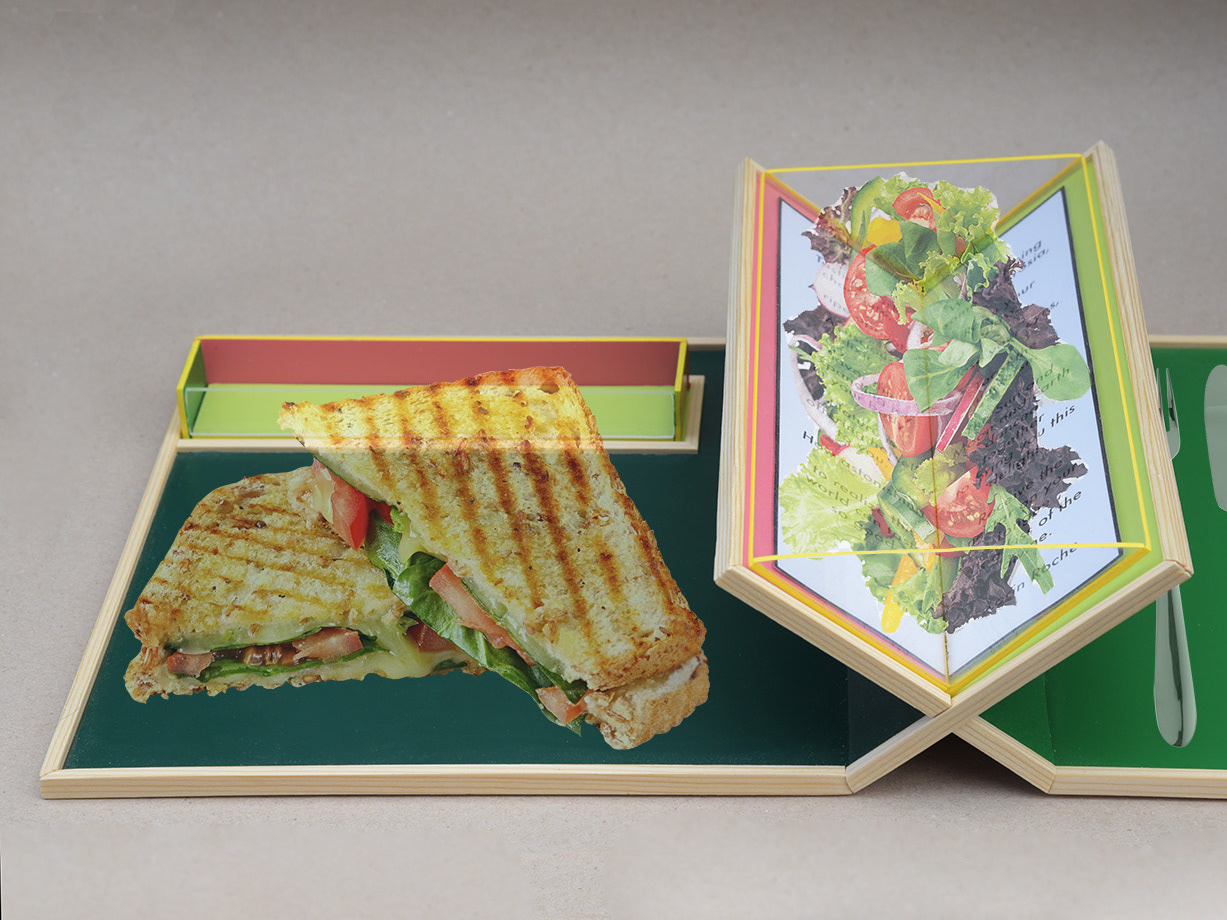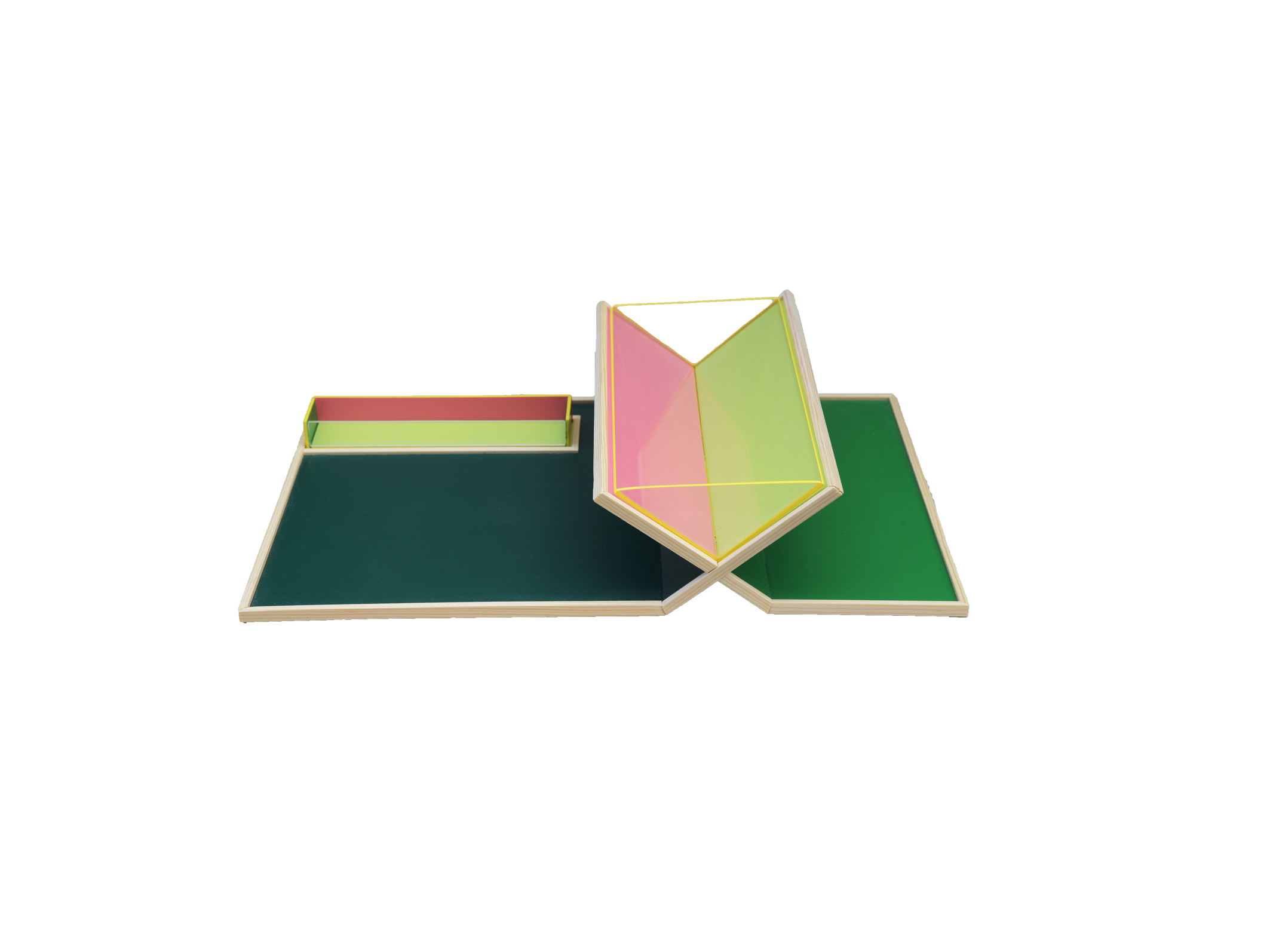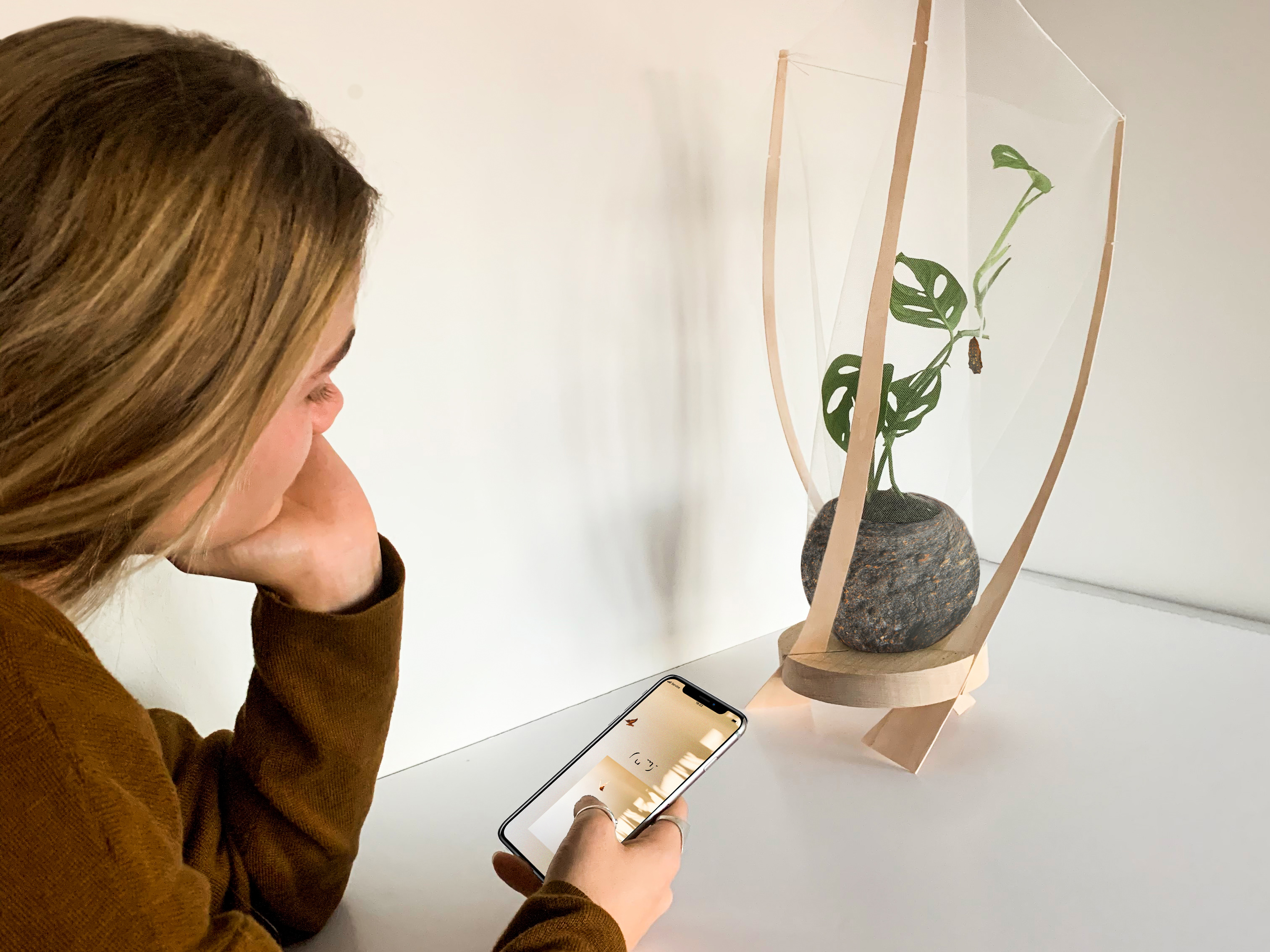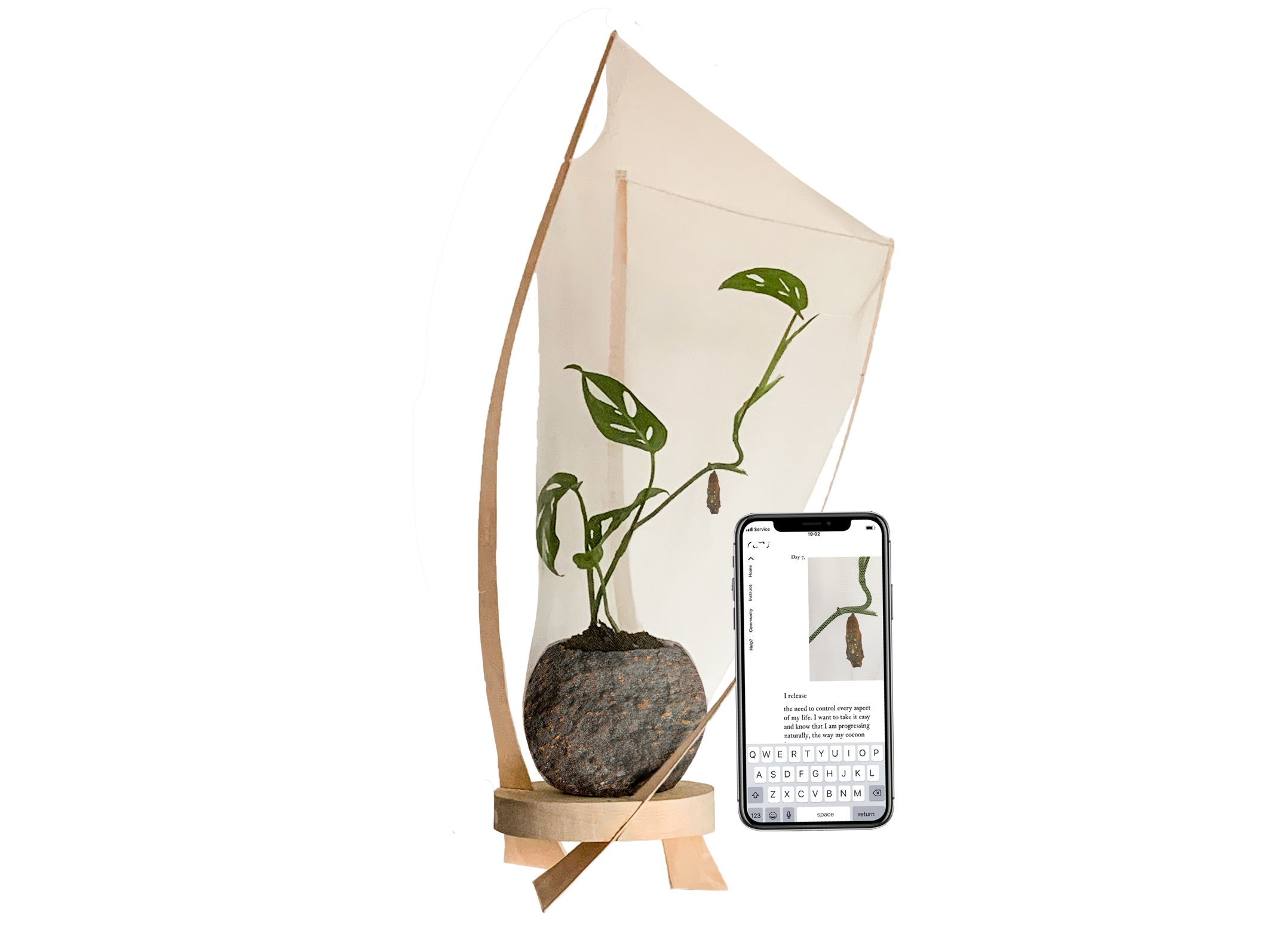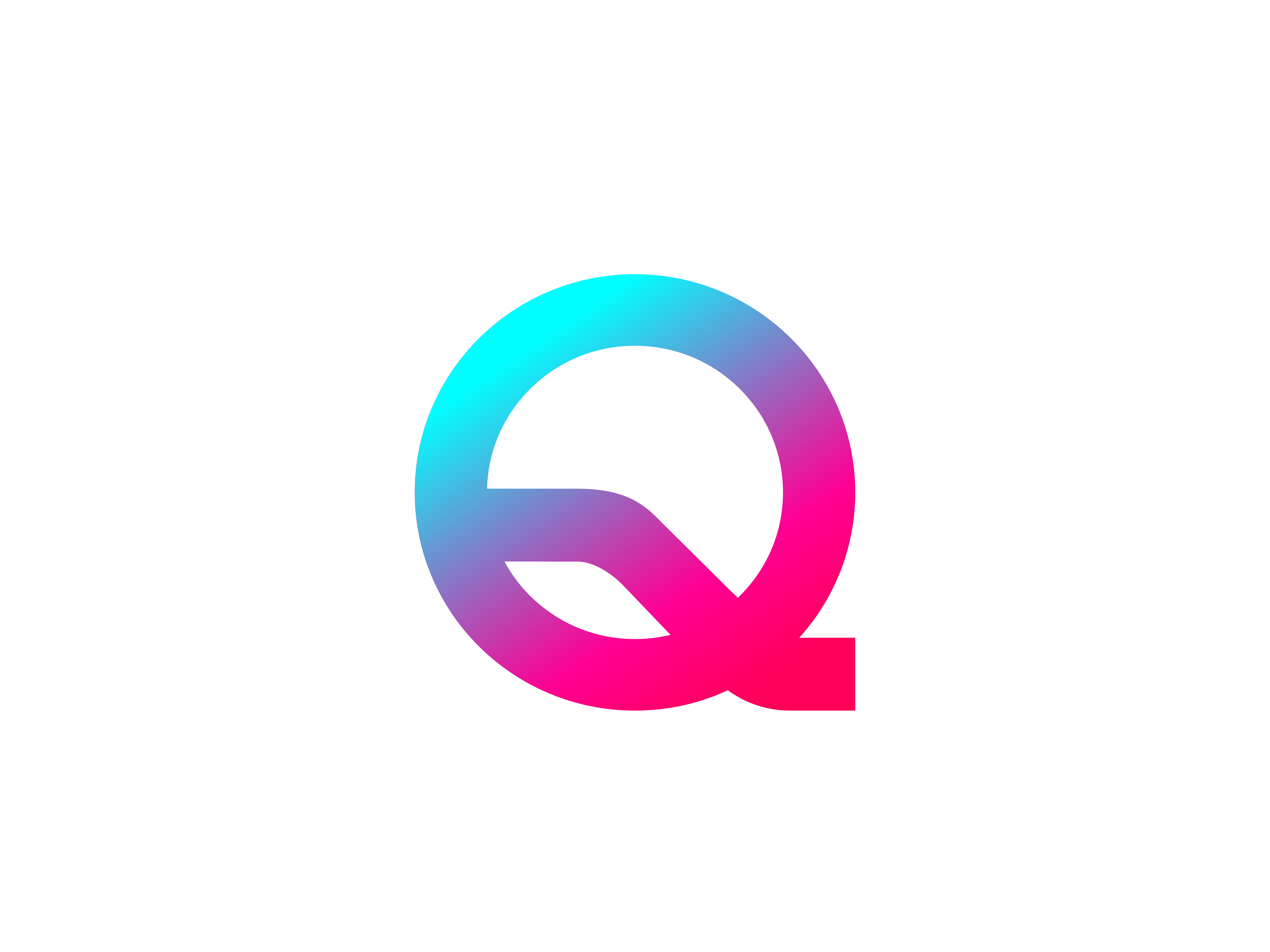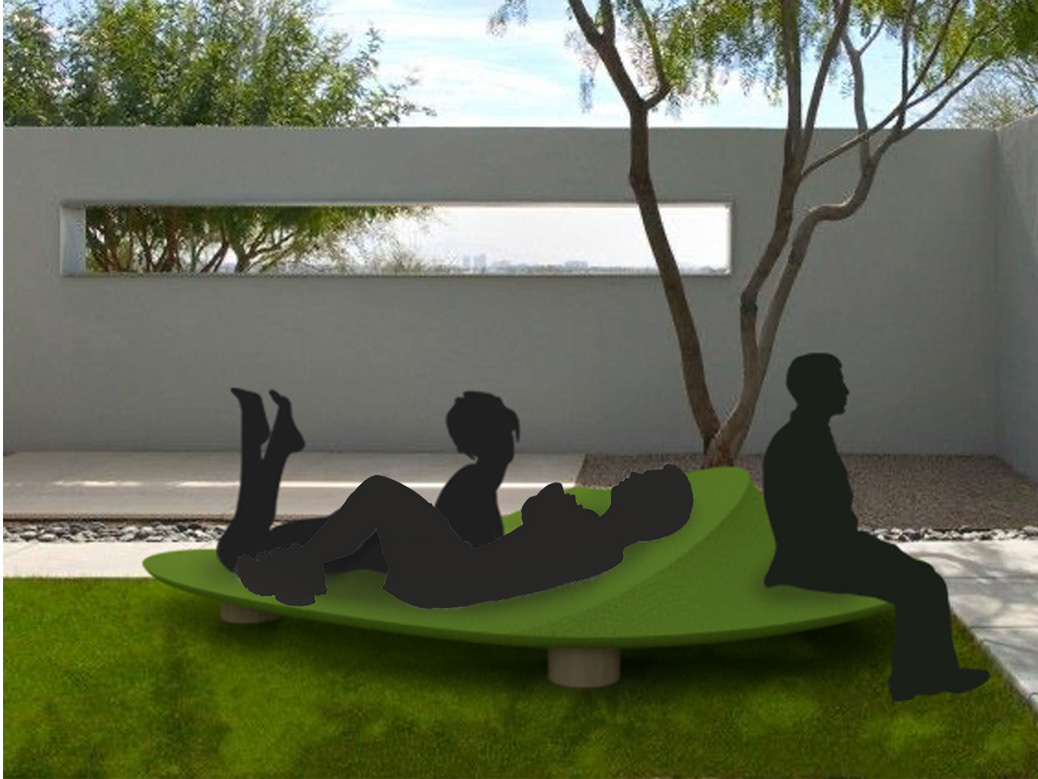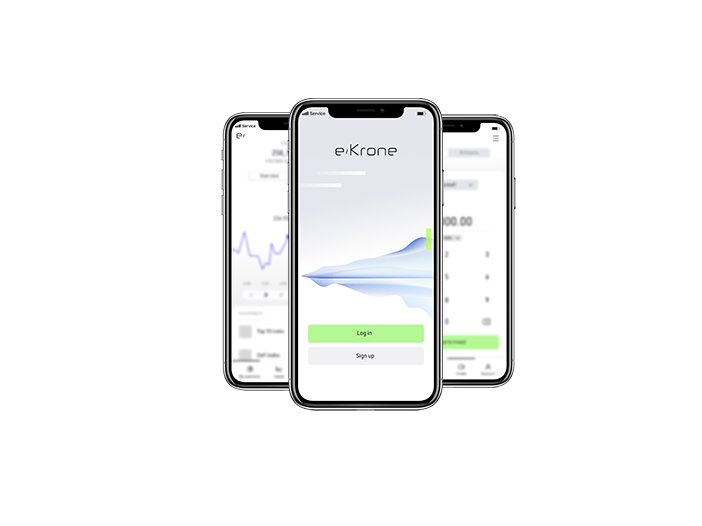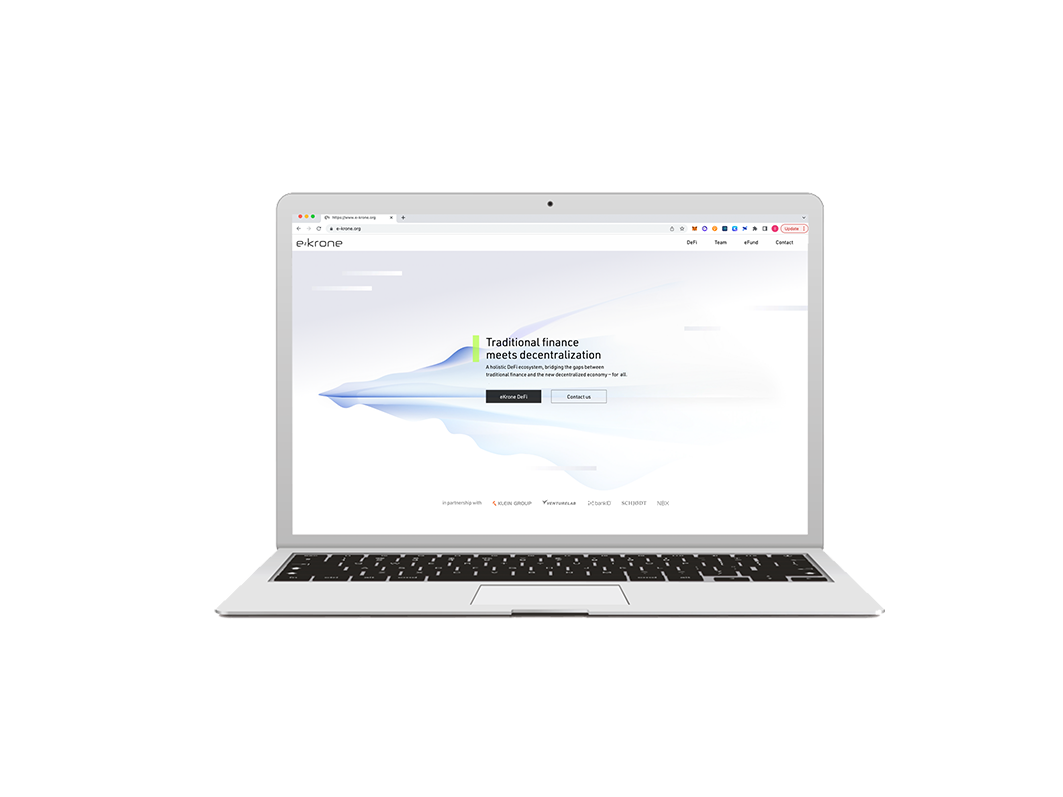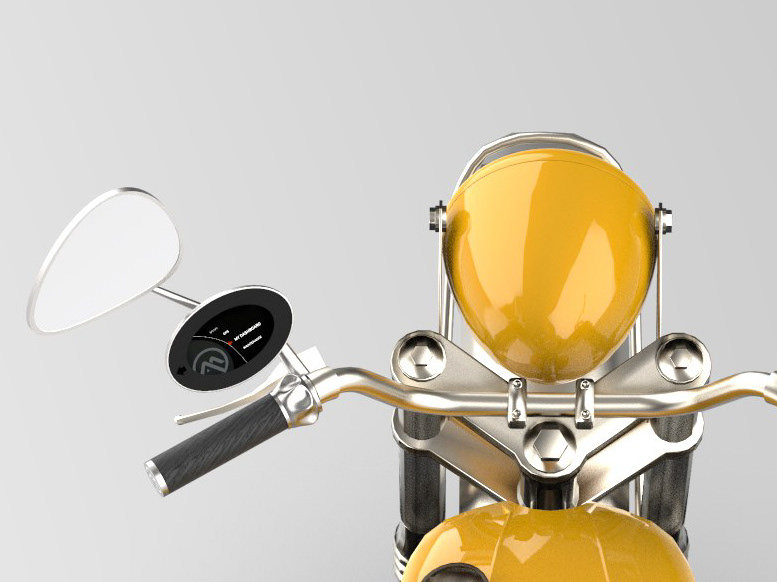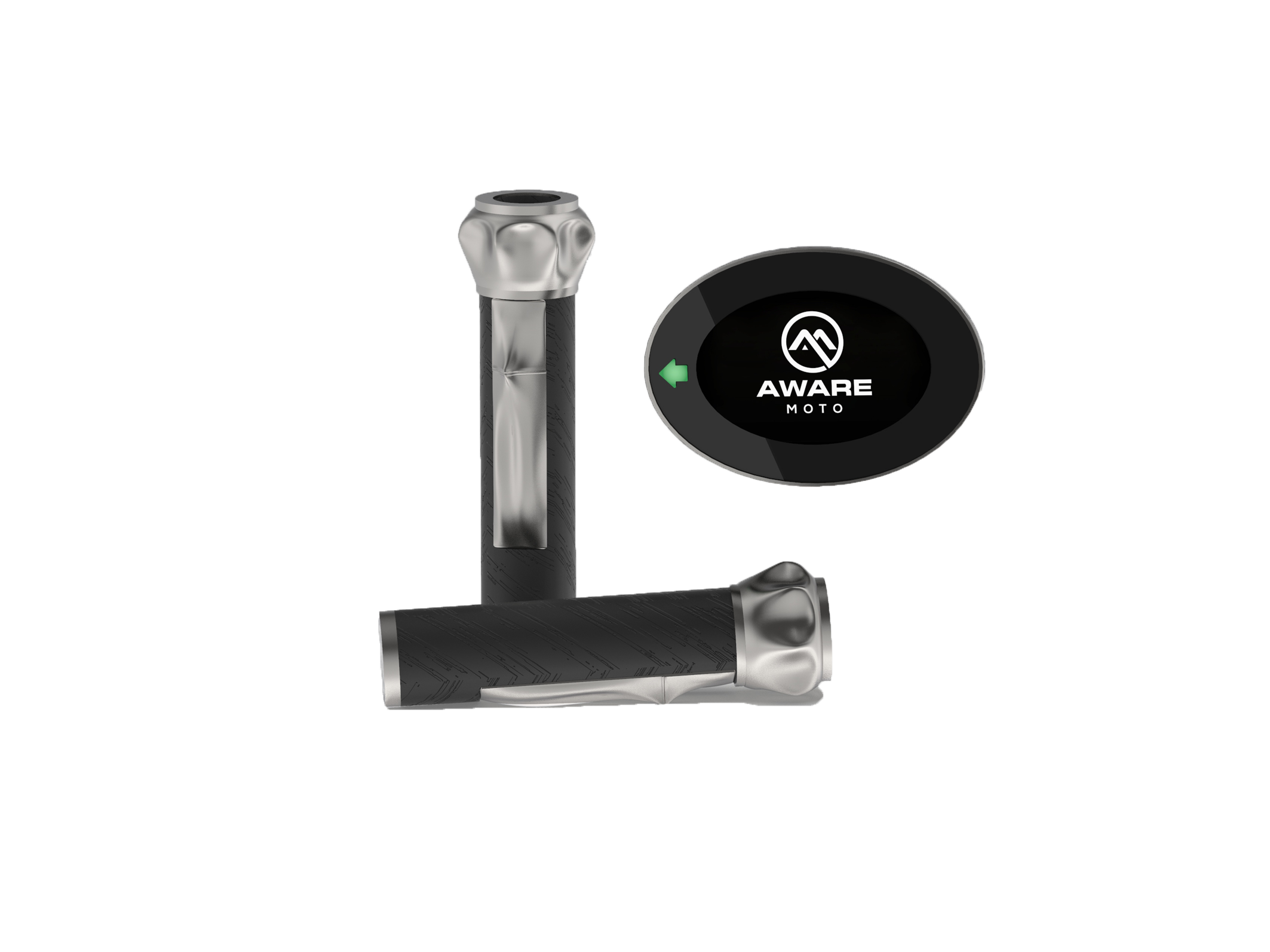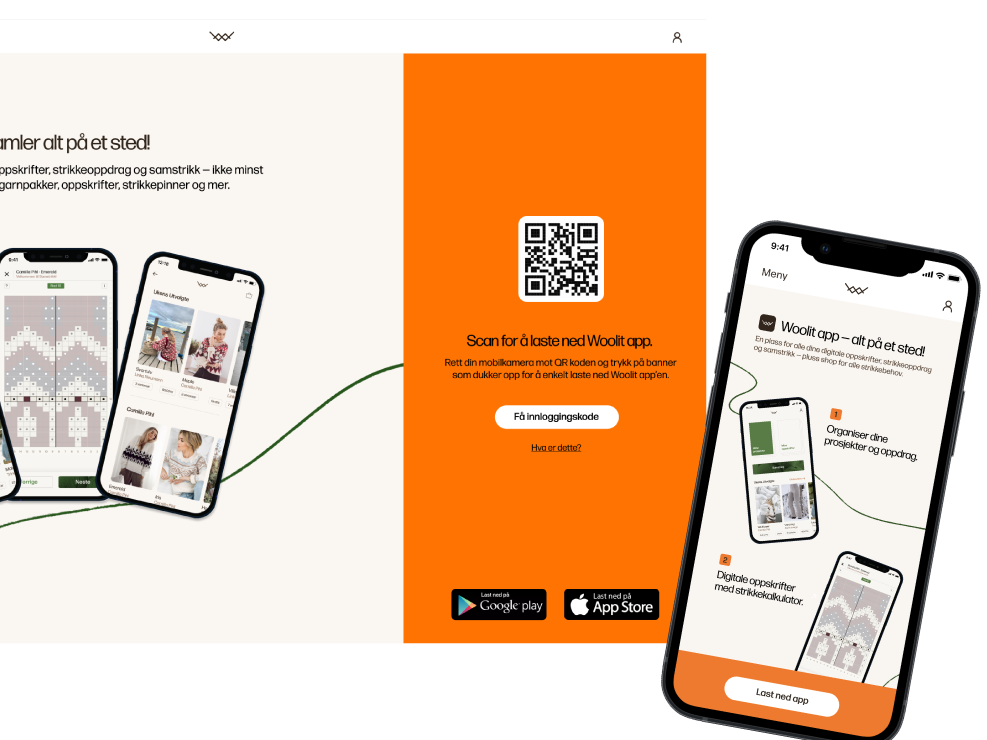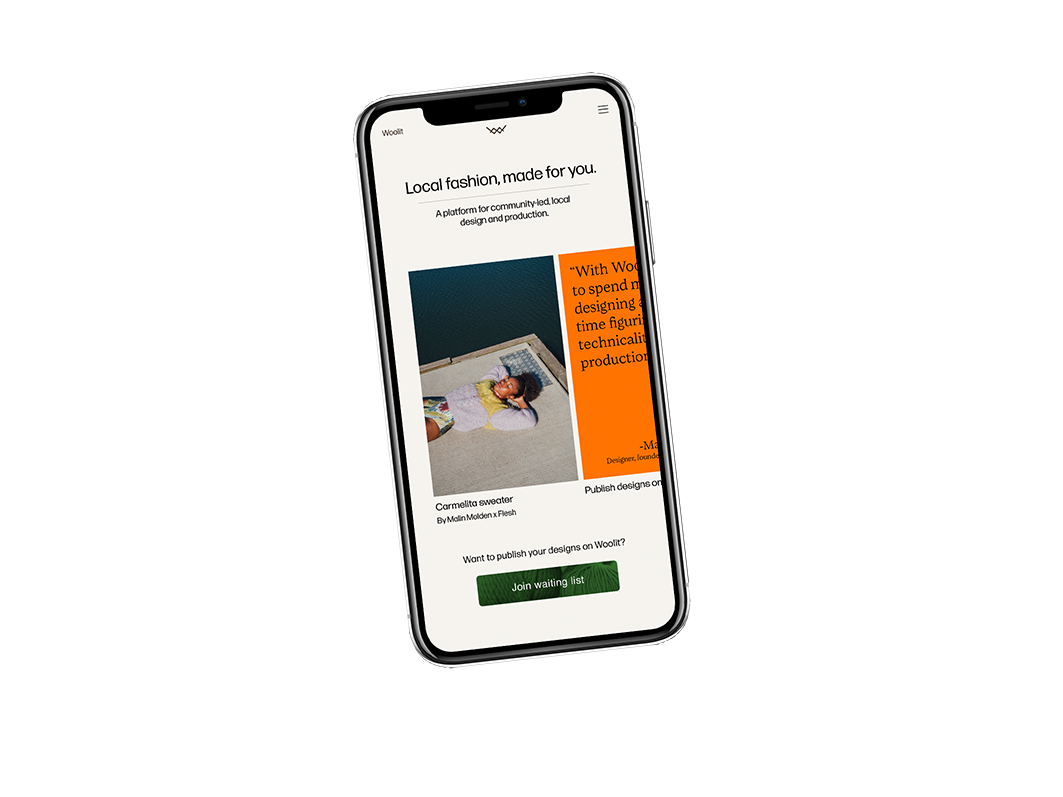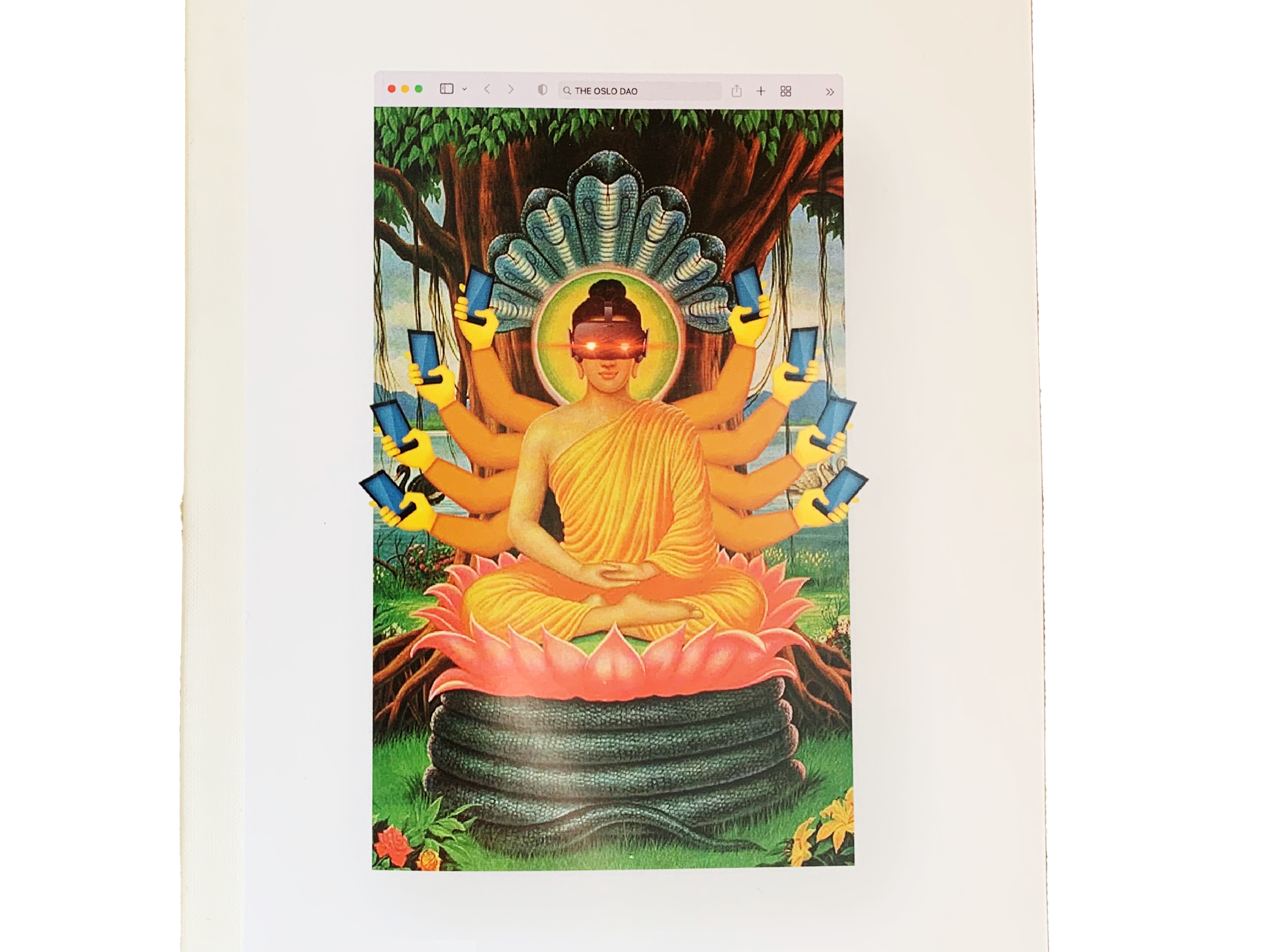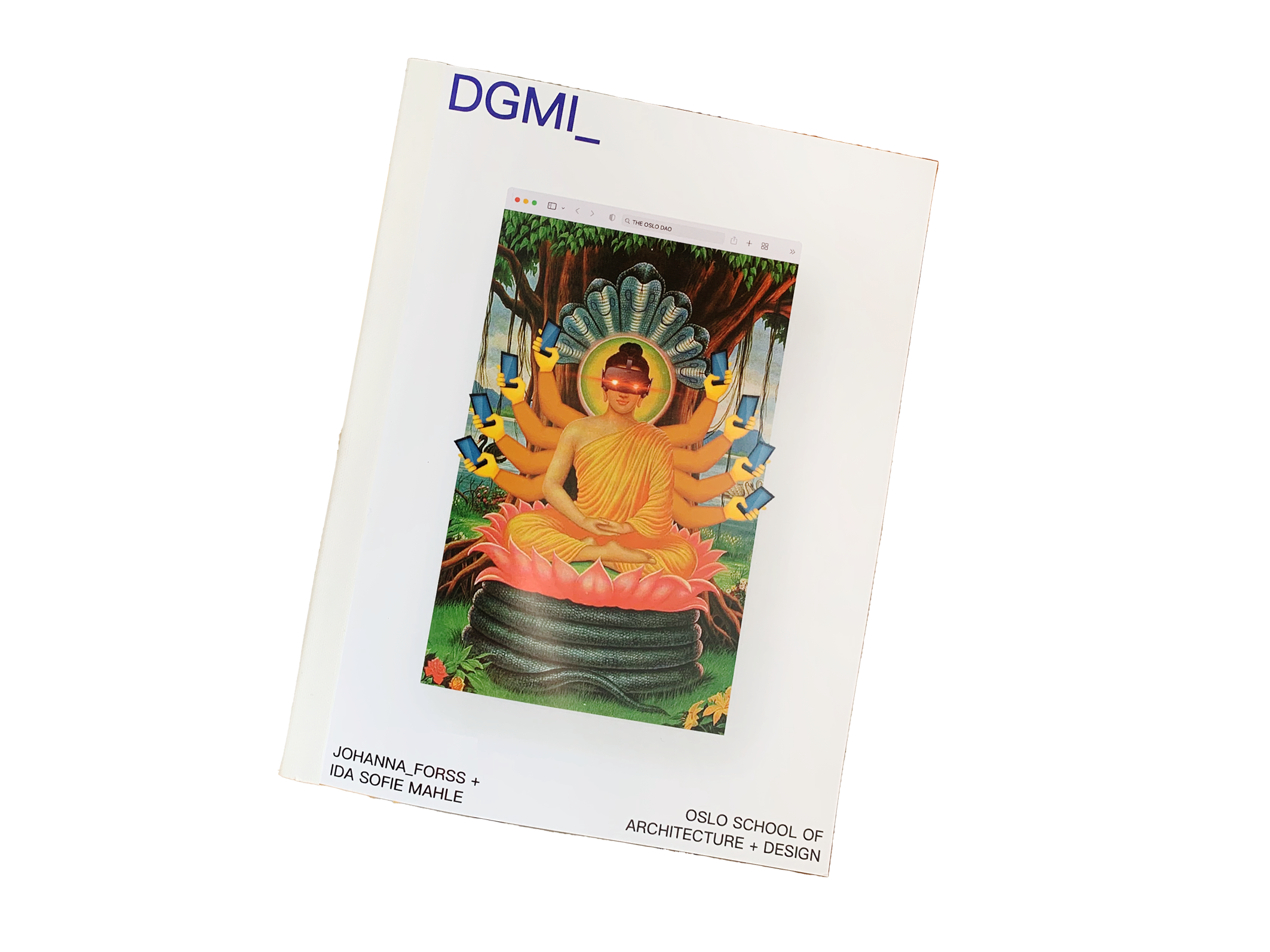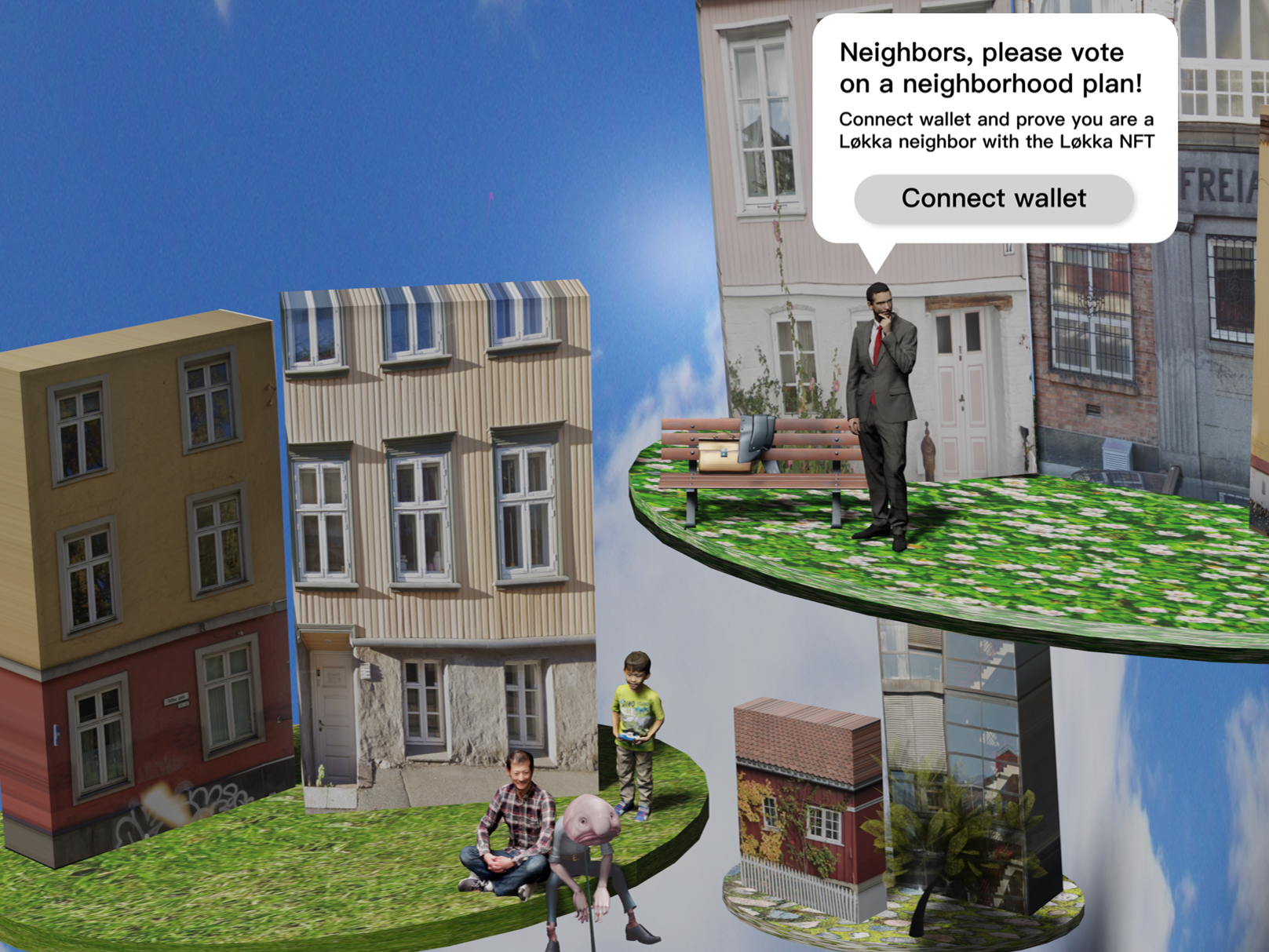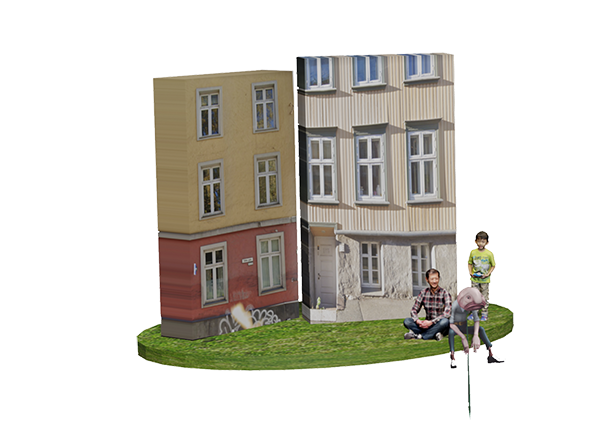This was a six week research project ALFA shoes as part of my summer internship at Iterate. Our aim was to validate whether or not establishing a customer club would be meaningful to the company and its customers, and if so what type of offering this customer club could have.
I lead a team of two developers, Simon Eide and Espen Knutsen Hegdal in an iterative design prototyping process. Our objective was to get quantitative data from Figma prototype embeds throughout ALFA's website to gain insight into what caught customer interest.
The initial hypothesis —
After doing some initial user interviews and background research on ALFA and its competitors, we formed a core hypothesis which guided our testing:
"A community is viable for brands which embody such a strong storyline and philosophy that customers personally identify themselves with its message."
For ALFA, it was quickly apparent that this message was one of sustainability and enjoying the experiences of Norwegian nature. Our next question then became how could we further promote these values within the brand?
Iterative prototyping —
In order to quickly get data, we tested this low-fi prototype whilst building out more expanded prototypes of potential directions. This outlined the different offerings of the customer club - from group hiking arrangements, lessons on how to maintain ones shoes, engagement in product development, recycling of shoes, shoe rent and shoe repair.
We iterated consistently through the design process in order to get as objective and unbiased data as possible. Below is the progression of iterations we did of the home meny. It was important here to present options in a flat hierarchy to not skew the responses.
We saw four main categories get formed: social events, practical maintenance, rent, and product involvement/storyline.
Below is the final flow we tested for the "maintenance" theme.
Different utilities we tested under the "social community" theme.
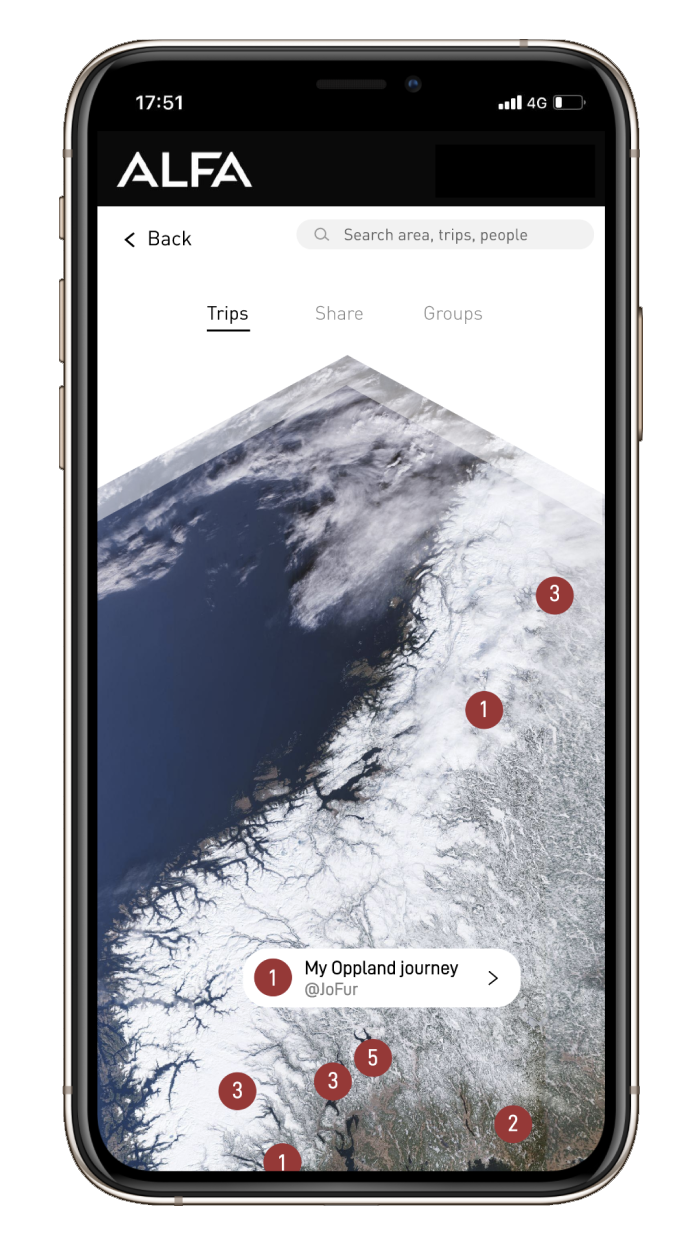
Home page of the social community. Notice how later on the "groups" tab changed to "events" based off testing.
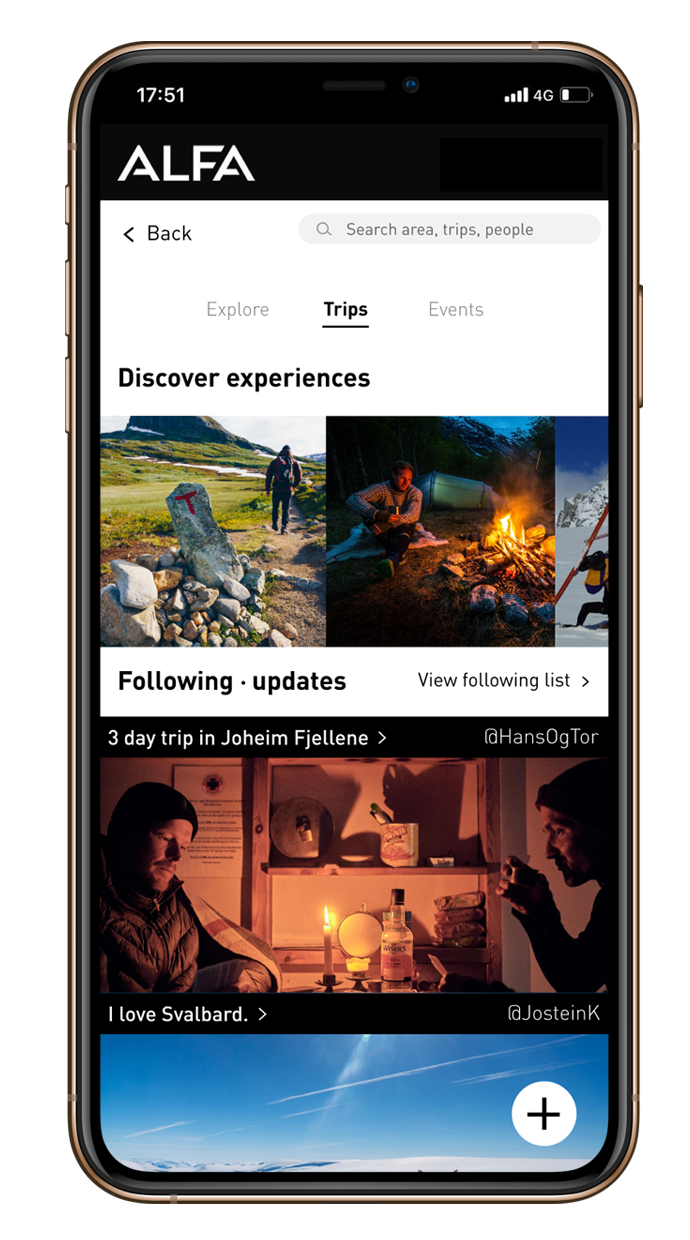
Scroll through trip sharing stories
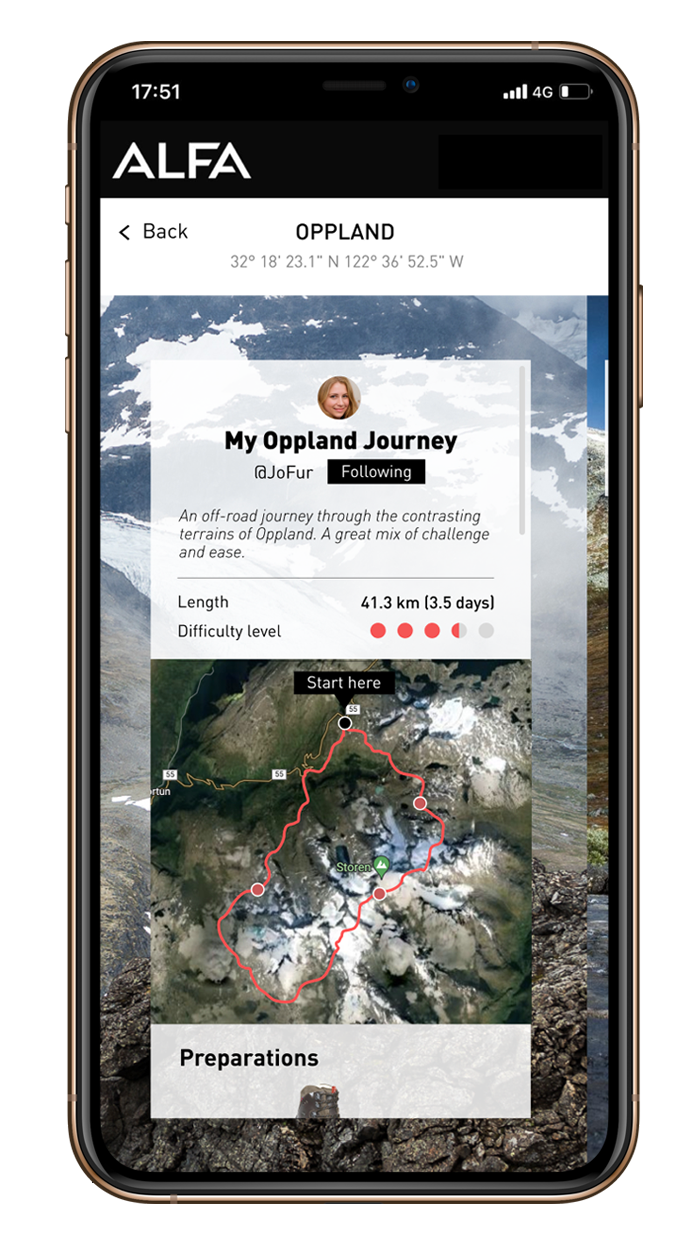
Trip sharing stories
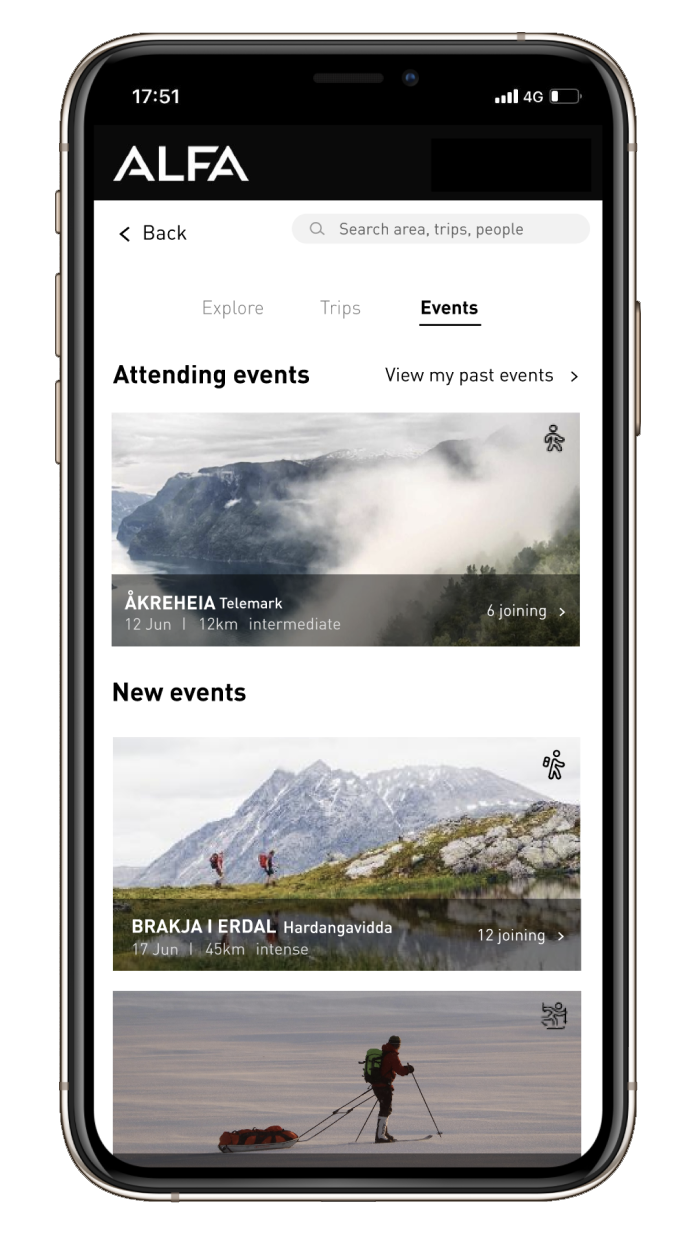
Events to join
"Rent" pages (below). It was important for us to also create pages for fulfillment of an action to differentiate between curiosity and real interest. These redirected to typeforms, in which ALFA would actually send out product shoes for rent. We saw this as a great opportunity for the company to also learn more about how a shoe rental process could work in actuality.
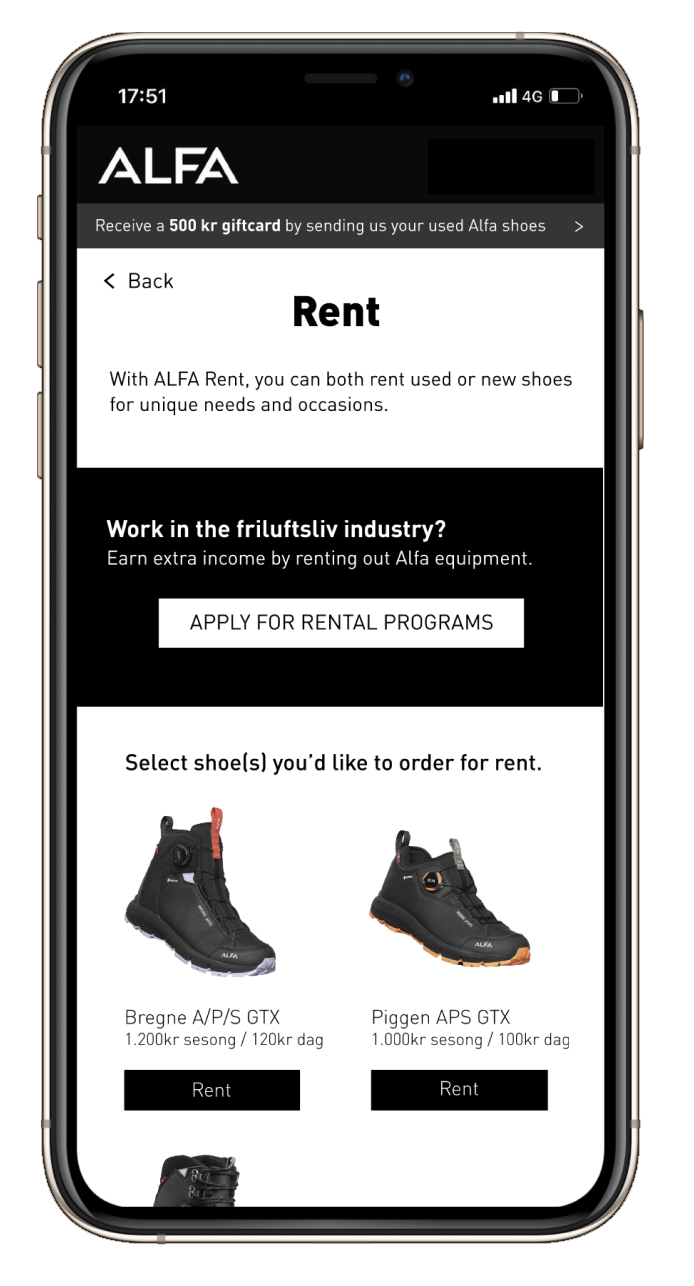
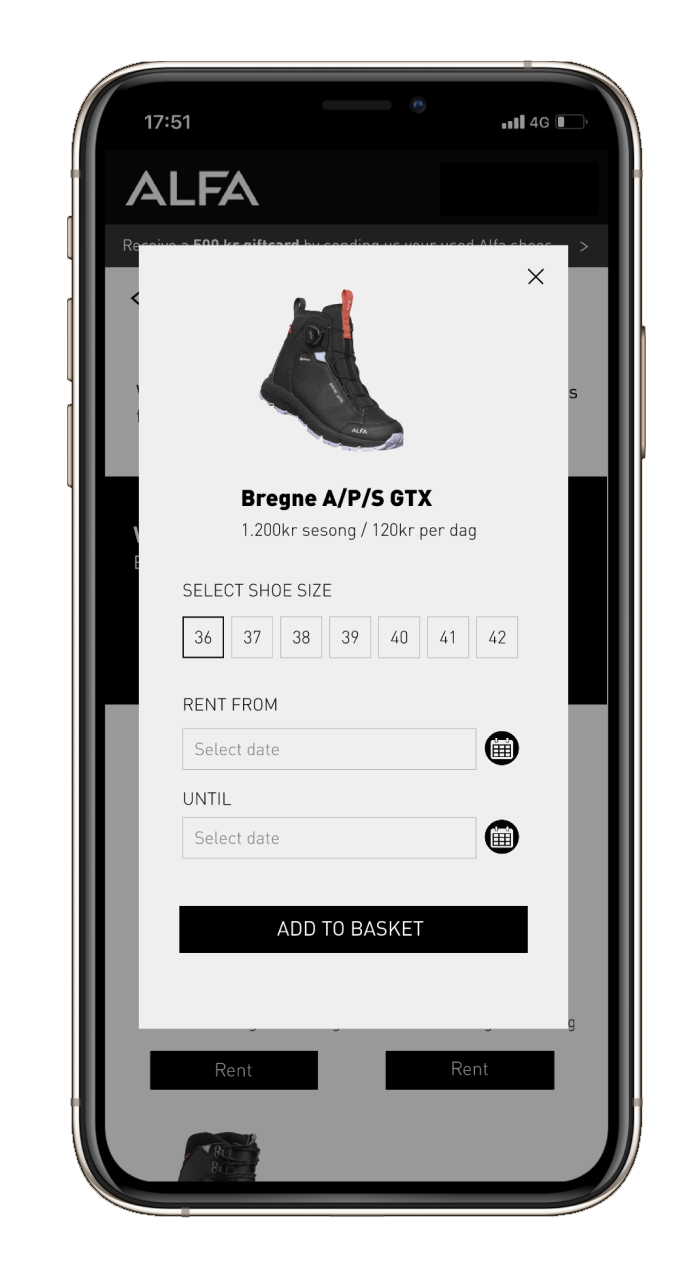
Throughout the process we saw that most ALFA power users loved the brand due to its product quality and heritage. Due to this feedback we eventually replaced pages that got less interest with pages that promoted awareness of history and production, along with ways for customers to get more actively involved in the shoe design process.
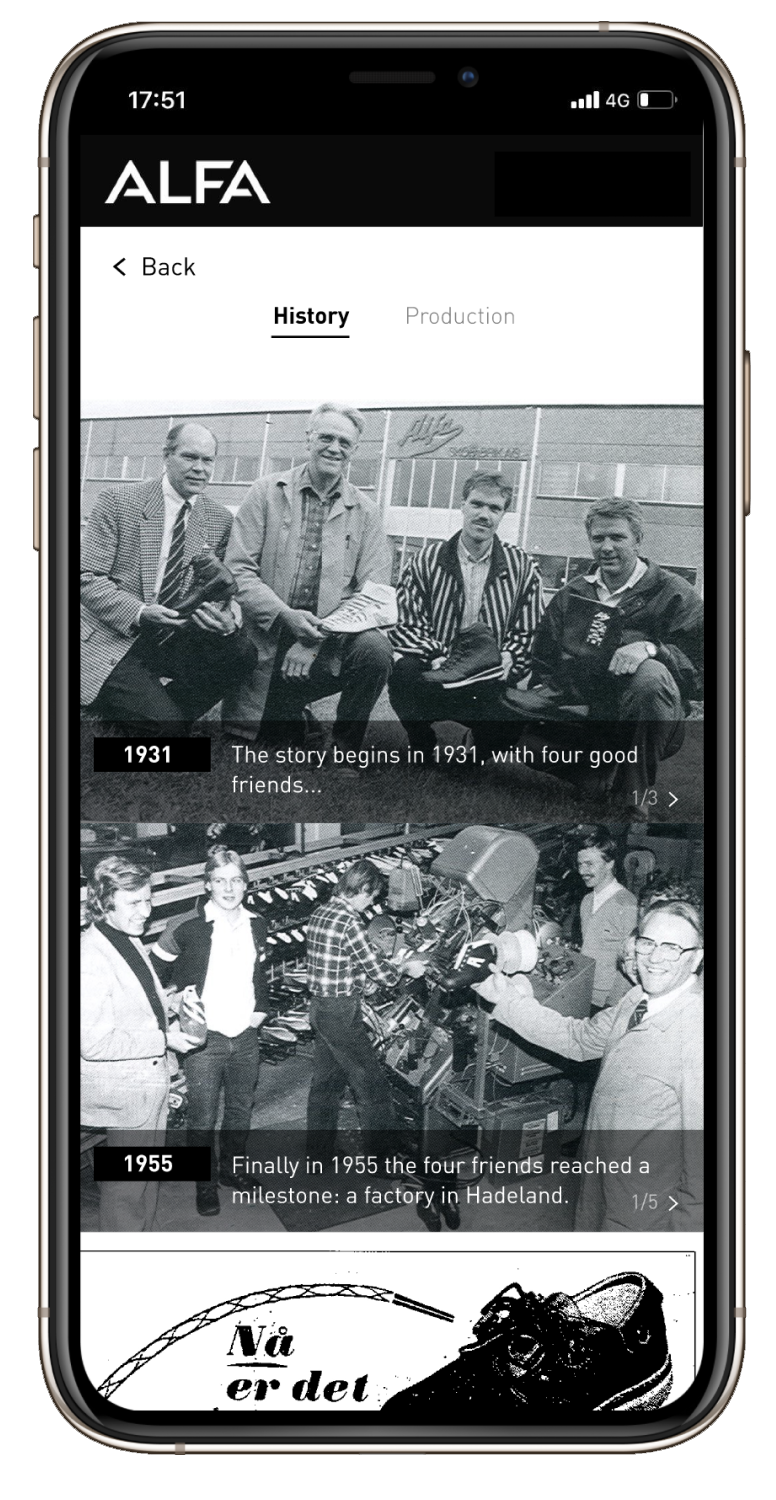
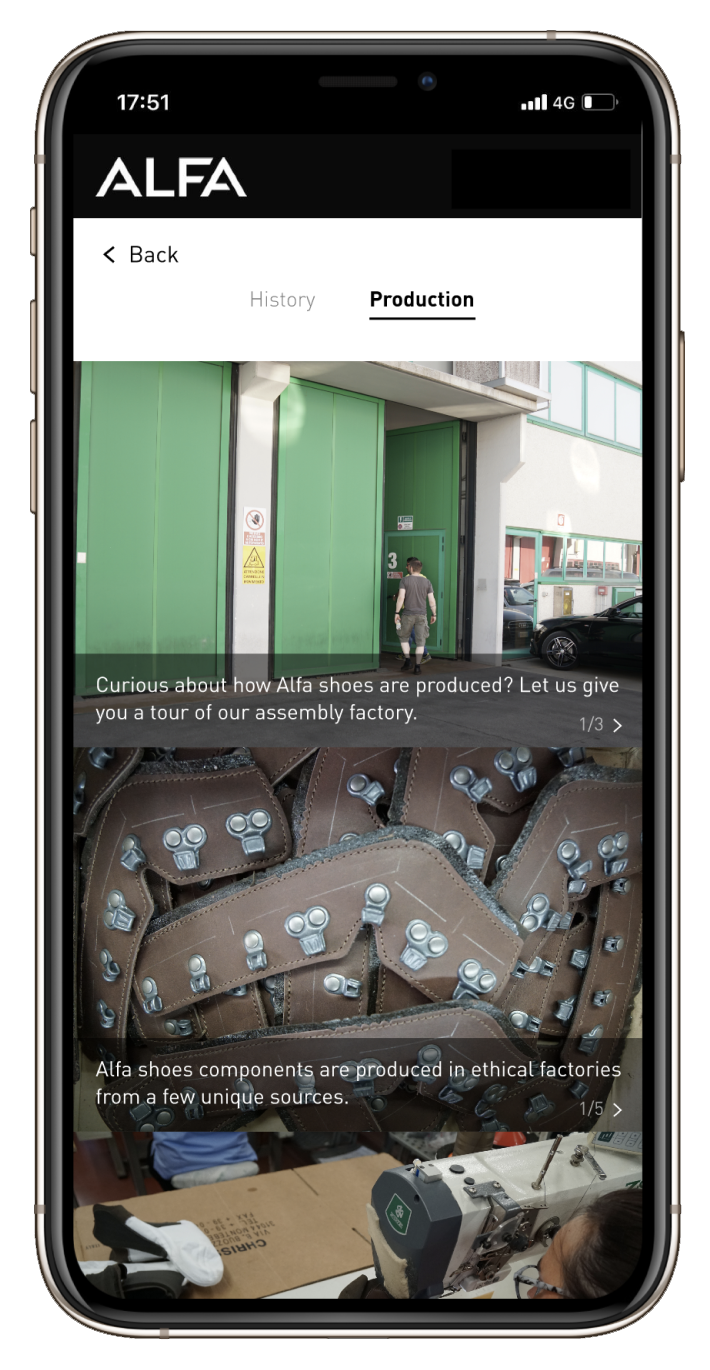
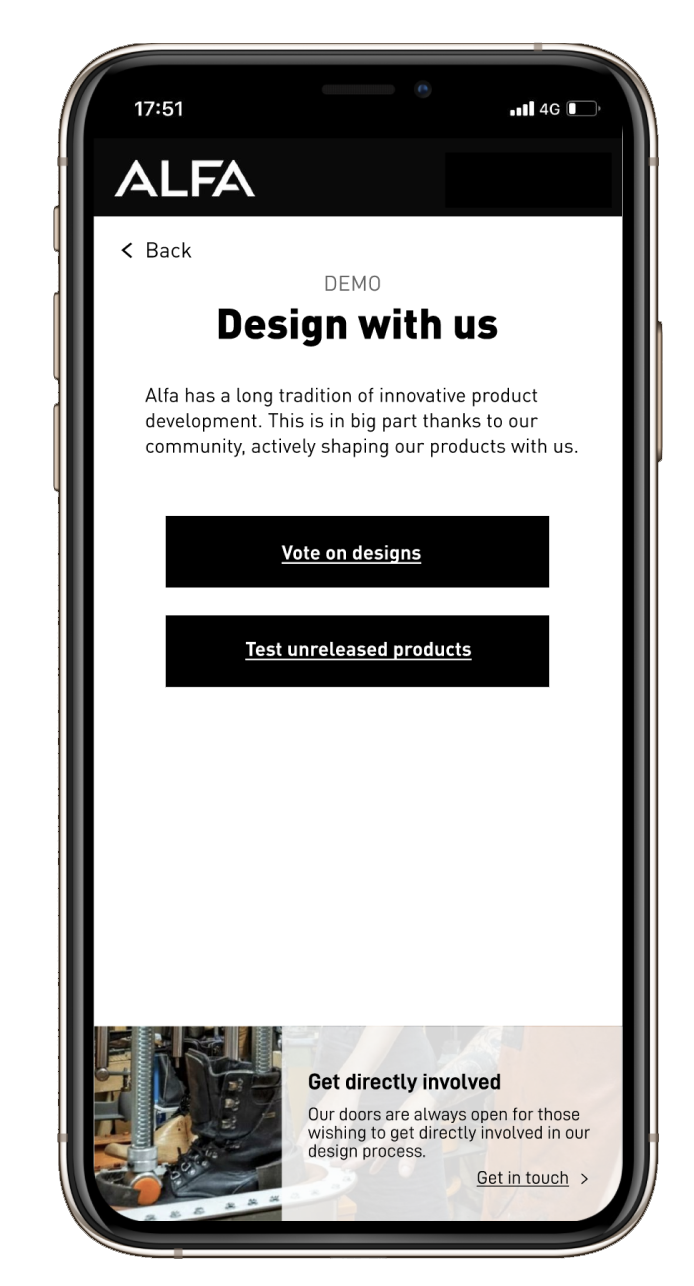
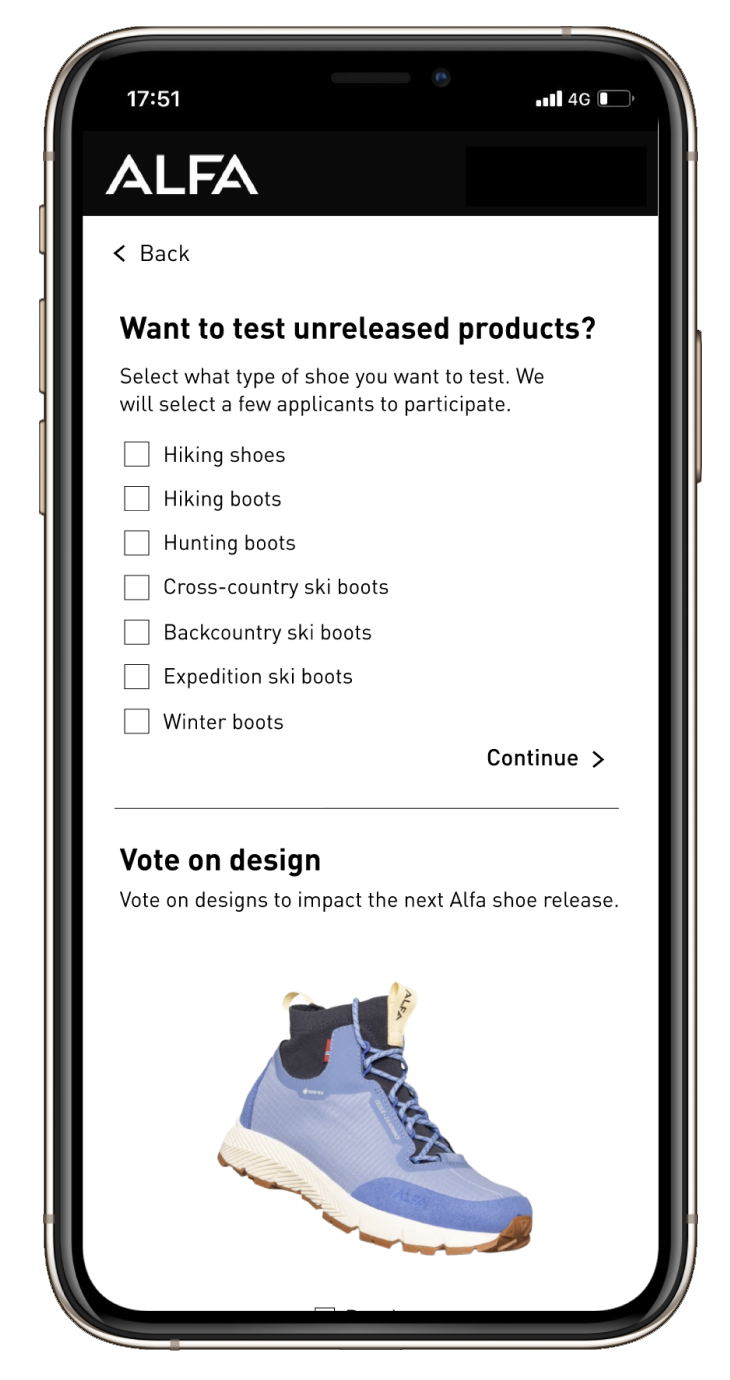
Gathering quantitative and qualitative data —
All these prototypes were finally tested through a banner which was published on the homepage of ALFA's website, redirecting to our Figma demo file and typeforms. Using Iterate's demo tool which quantified interactions on a Figma file, we gained data related to where customers navigated along with retention time.
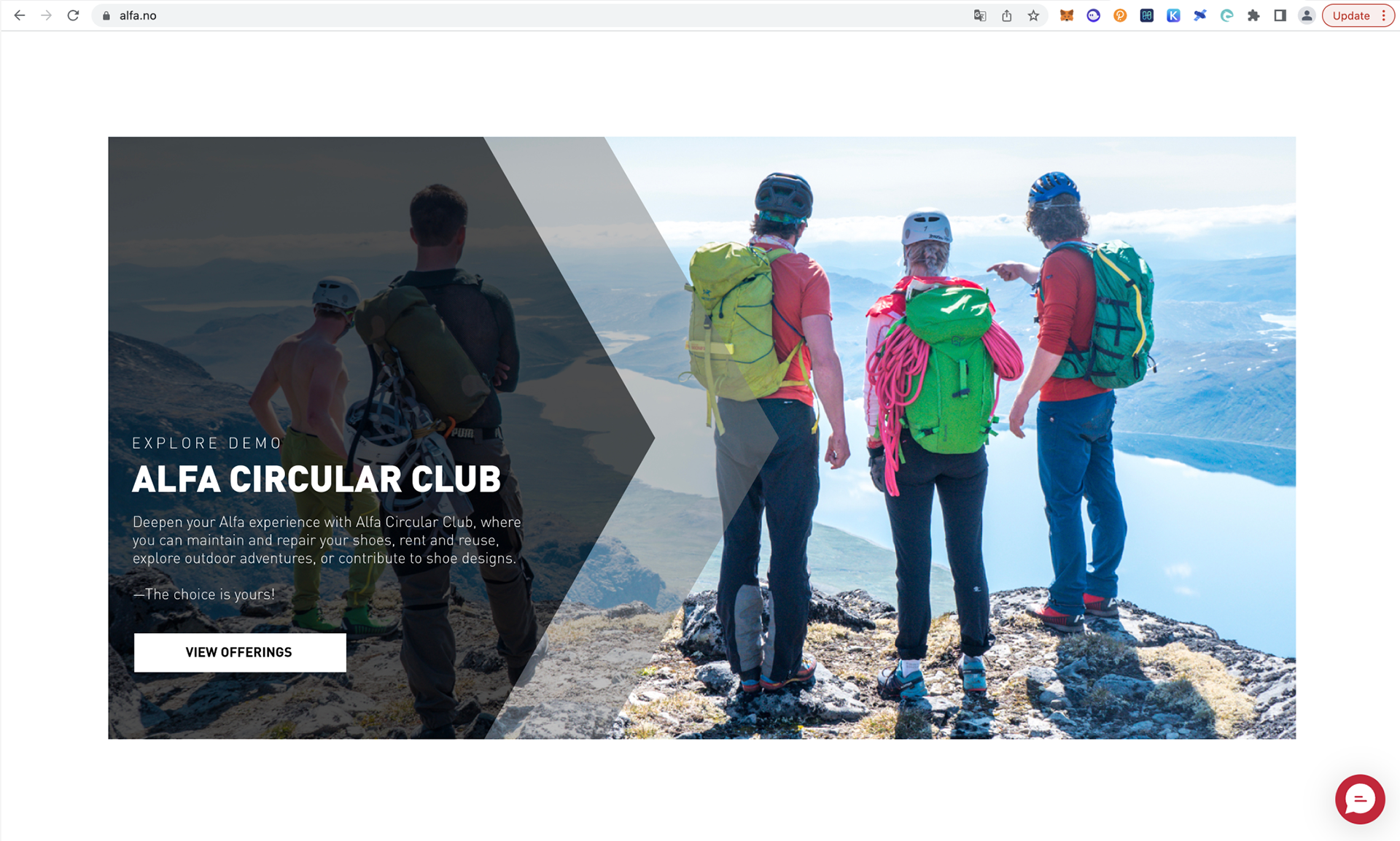
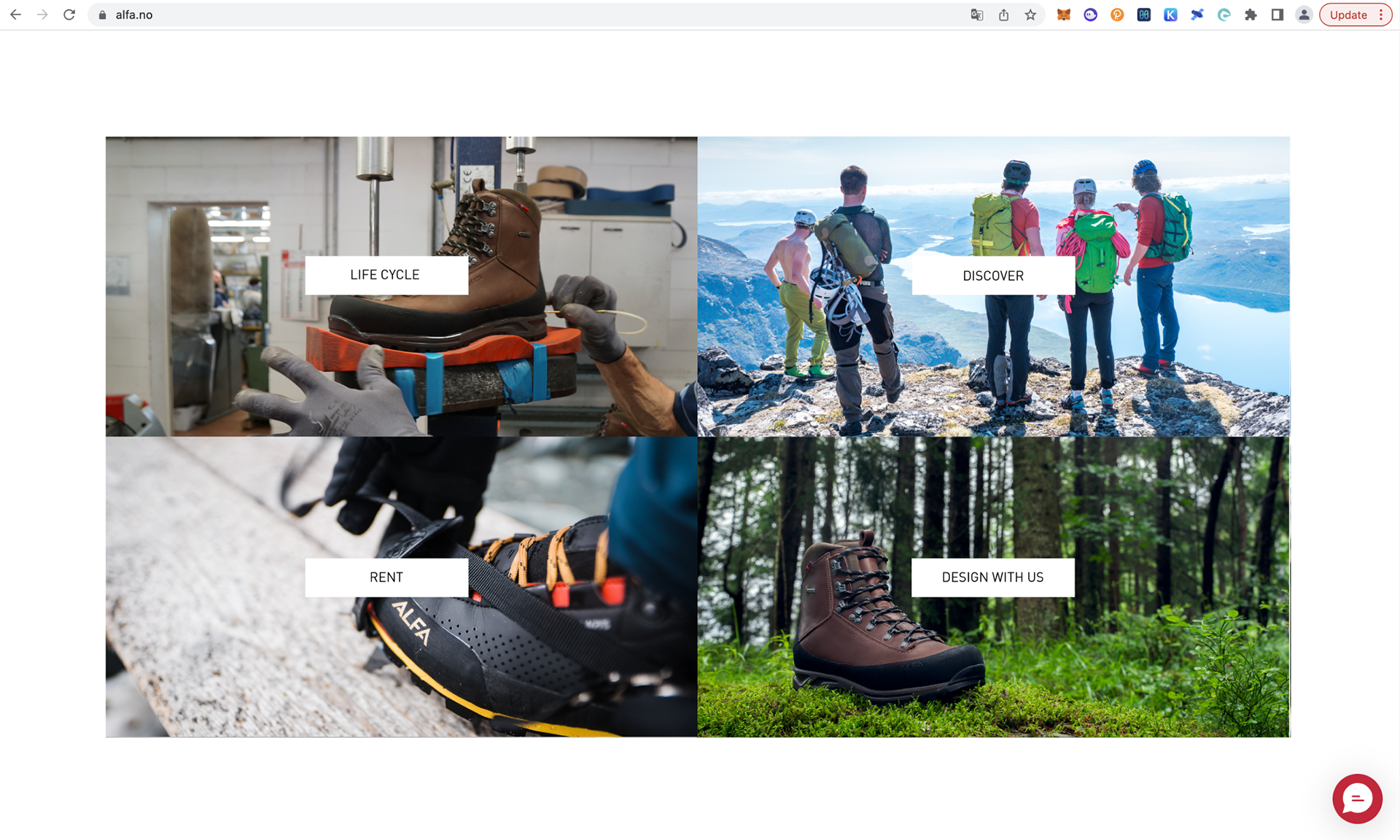
After one week, a total of 11 people had completed the typeforms, predominantly on the "vote on design" and "test unreleased products" page.
We did a total of 24 qualitative interviews combined with 159 visits and 1829 interactions to our Figma embed (over the course of two weeks). This gave quantitative data to confirm or invalidate what we heard during interviews.
All in all, if I learned one thing during this project it would be:
look at what the customer does, not what they say.
